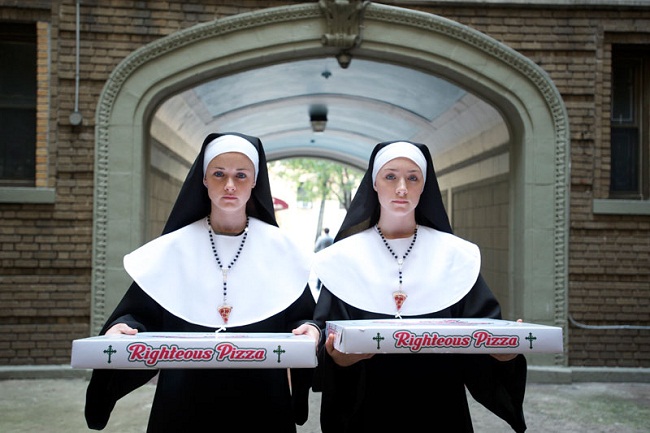 It may be argued that the 2009 drama Precious remains one of the most distinguishing female-driven films to be released within the last decade.
It may be argued that the 2009 drama Precious remains one of the most distinguishing female-driven films to be released within the last decade.
Based on the novel Push by Sapphire, the haunting drama broke new ground in Hollywood. Much of that has to do with the film’s screenwriter Geoffrey S.
Fletcher, who took home an Academy Award for his adaptation of the story.
His latest film, Violet & Daisy not only marks his directorial debut. It also proves he’s one of the few filmmakers that effectively creates
profound female characters. The dark comedy centers on two teenage hit women (Saoirse Ronan and Alexis Bledel) who grow attached to one of their targets
(James Gandolfini).
Women and Hollywood had the chance to chat with Fletcher about the role of women onscreen and his approach to developing characters.
Women and Hollywood: With Precious and now Violet & Daisy, it’s clear that you have a knack for crafting dynamic female
characters. What’s your take on the scarcity of female characters with depth?
Geoffrey Fletcher: So many things have been done with men and yet there are so many untold perspectives in film. I think that in the crime and coming of
age genre a lot has yet to be done with women. There’s a great deal of opportunity for a new perspective and take on storytelling. So rarely are films made
where women are driving the plot. Often times they’re in the margins as a love interest or being chased in the woods with a chainsaw.
If you do the math, films featuring women are a good investment. Look at some of the hits within the last few years like Black Swan, Bridesmaids, The Help, Identity Thief, The Blind Side.
WaH: The two protagonists in Violet & Daisy are far from the typical female archetypes we see onscreen. How did you approach writing women
with depth who evolve substantially over the course of the film?
GF: Early on, the film feels like a graphic novel. The reality is very heightened. As the story progresses, so do these characters and they land closer to
reality and their own humanity. At the beginning, there are certain threads that are heightened but grounded. For instance, Violet and Daisy want this
dress that’s designed by their favorite pop star. Perhaps because they think that they can meaningfully change their importance.
There’s a search for something outside of themselves. It’s so easy to get caught up in celebrity fixation and materialism when in actuality–looking within
may be the answer. By the time the film ends, their perspective evolves but it comes at a cost.
WaH: Your undergraduate course work centered on Psychology, how has that affected your work?
GF: I use it everyday. It’s so connected to character motivation and their obsessions and blocks. I used it a great deal while working on Precious and Violet & Daisy.
A lot of those escape scenes in Precious were grounded in something real because when people undergo great trauma, escape can manifest itself in a
fantasy life or you can form an entirely separate personality. Often times a genuine and caring connection with another human being can be a step towards a
breakthrough. We see some of that in both of these films.
Even though there are some elements to these films that are starkly different but at the core my hope is that they’re humanist. However wild, startling,
funny, or surreal these journeys are, none of that works without it being grounded in something human.
WaH: One of the most exciting aspects of your work, is the ability that you have to weave fantasy and reality. Why have you chosen to incorporate
hyperreality into your stories?
GF: There’s a very wide bandwidth of ways that one can effectively tell a story. Film is an art form so why not explore more dimensions of it? To me that’s
exciting. You can be moved by an animated film and not by a live action film. There could be great inspiration in and humanity in that animated story.
It goes back to mythology and all these other incredible stories that we can apply to our own lives because they’re rooted and representative of our shared
experiences and challenges on this earth.
_____________________________________________________
Justine Browning is a film and culture reporter whose work has appeared in USA Today and The Huffington Post. She currently serves as an on-camera
correspondent for MovieWeb and contributes to GeekNation.com.






